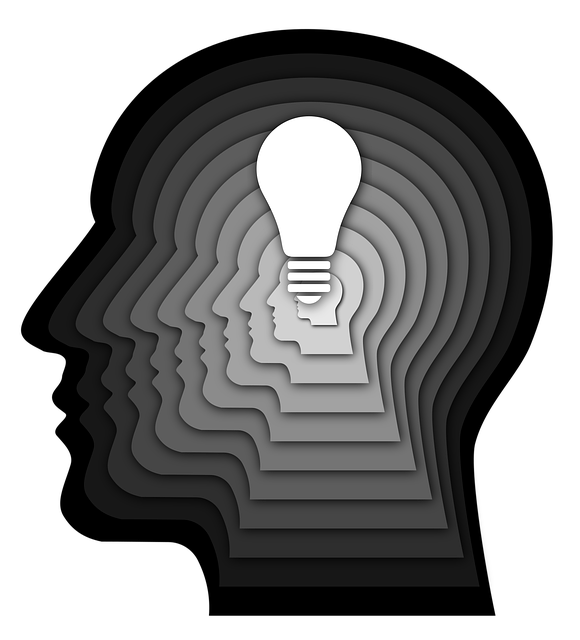Highlands Ranch residents with anxiety disorders can find relief through Exposure and Response Prevention (ERP) Therapy, an evidence-based approach combining self-awareness exercises and gradual exposure to stressors. This method helps individuals challenge fear-related thoughts, learn coping strategies, and regain control over emotional responses. Journaling is a powerful tool within ERP therapy, allowing people to explore their thoughts, process trauma, gain insights into their mental illness, and reduce stigma. Regular journaling improves emotional well-being, enhances coping mechanisms, and promotes resilience in Highlands Ranch Exposure and Response Prevention Therapy.
“Unwind and embrace mental clarity through the transformative power of journaling. This guide delves into the intersection of Highland Ranch Exposure and Response Prevention (ERP) Therapy and its benefits for mental wellness. Discover how this evidence-based practice, combined with self-expression through journaling, can help manage anxiety and stress. We’ll provide a step-by-step approach to incorporating ERP journaling into your daily routine, offering a calm sanctuary for reflection and personal growth.”
- Understanding Exposure and Response Prevention Therapy (ERP) for Mental Wellness
- The Power of Journaling as a Therapeutic Tool
- Step-by-Step Guide to Incorporating ERP Journaling into Your Routine
Understanding Exposure and Response Prevention Therapy (ERP) for Mental Wellness

Exposure and Response Prevention (ERP) Therapy is a highly effective approach to managing mental wellness, especially for individuals dealing with anxiety disorders. This evidence-based practice helps clients confront fears and anxieties in a safe, controlled environment, gradually reducing their avoidance behaviors. By facing their triggers, Highlands Ranch residents can learn to manage their responses and reduce the impact of stress and worry on their daily lives.
The process involves self-awareness exercises that encourage individuals to recognize and understand their emotional responses. Through gradual exposure to stressors, patients develop coping strategies, gaining a sense of control over their mental health. ERP therapy aims to challenge the thoughts and behaviors associated with mental illness stigma reduction efforts, ultimately fostering better public awareness campaigns development and self-acceptance.
The Power of Journaling as a Therapeutic Tool

Journaling has emerged as a powerful therapeutic tool, offering individuals a means to explore their thoughts and emotions in a safe and private space. This practice, often utilized in exposure and response prevention (ERPT) therapy, such as that offered in Highlands Ranch, allows for self-reflection and introspection. By putting pen to paper, one can confront fears, process traumatic experiences, and gain valuable insights into their mental illness. Through regular journaling exercises, individuals can develop a deeper understanding of their emotional responses, enabling them to better manage their mood and promote overall emotional well-being.
This practice is an effective way to challenge the negative thoughts and behaviors associated with mental illness while also serving as a crucial component in reducing the stigma surrounding these health issues. The act of recording personal experiences and feelings can help individuals feel more empowered, providing them with tools to navigate their mental health journey with increased confidence.
Step-by-Step Guide to Incorporating ERP Journaling into Your Routine

Incorporating Exposure and Response Prevention (ERP) journaling into your routine is a powerful way to build inner strength and develop better coping mechanisms for mental wellness. Here’s a step-by-step guide to help you get started:
1. Identify Your Triggers: Begin by noting down situations, thoughts, or emotions that often lead to distress. These triggers could be specific events, people, or internal dialogues. For instance, if public speaking makes you anxious, write about the exact scenarios and feelings associated with it.
2. Describe Your Exposure: Next, describe in detail how you typically respond to these triggers. Are you physically affected by them? What thoughts race through your mind? This step helps in recognizing the connection between your exposure (the trigger) and response (your emotional or physical reaction). For example, “When I speak in front of a large audience, my heart races, and I feel a sudden wave of anxiety.”
3. Practice ERP Techniques: Using the information from steps 1 and 2, start applying ERP strategies. Encourage yourself to gradually expose yourself to these triggers while preventing any habitual avoidance or safety behaviors. Journaling provides a safe space to document your experiences and track your progress. For instance, if public speaking is your trigger, you might start by imagining the situation, then move on to watching videos of speeches, and eventually, consider joining a public speaking club.
4. Focus on Response Prevention: The key to ERP journaling is preventing avoidance behaviors. Instead of trying to escape or suppress distressing thoughts, learn to observe them without judgment and let them pass. Write about your attempts at response prevention and how it affects your overall well-being. This process helps in building resilience and reducing the power these triggers have over you.
5. Reflect and Analyze: Regularly reflect on your journal entries to identify patterns and areas of improvement. Notice if certain techniques work better than others for specific triggers. This self-care routine development can lead to enhanced social skills training as you become more comfortable facing challenges head-on.
6. Consistency is Key: Make journaling a daily habit, setting aside dedicated time each day. Consistency is vital for building inner strength and making significant progress in your mental health journey.
Mental wellness journaling, particularly using Highlands Ranch Exposure and Response Prevention (ERP) Therapy techniques, offers a powerful way to gain insight, manage stress, and improve overall well-being. By combining self-reflection with structured ERP practices, individuals can effectively challenge negative thoughts and behaviors. Through regular journaling, you can track your progress, build resilience, and cultivate a deeper understanding of yourself. Embrace this simple yet effective tool to enhance your mental health journey.












